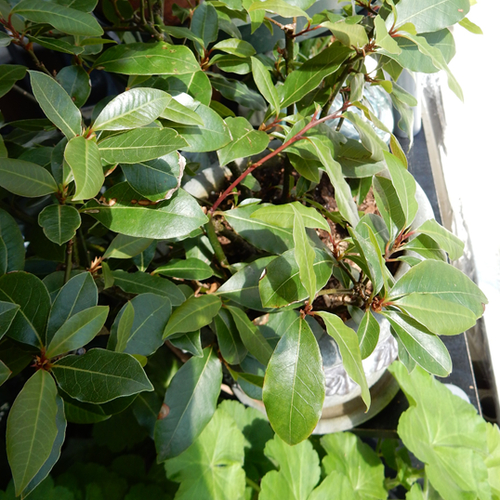
Background
As a medicine, khat leaf is used for diabetes, muscle strength, to lower the need for food and sleep, and to increase aggression, but there is no good scientific evidence to support these uses.
The World Health Organization (WHO) lists khat as a drug that creates "dependence" in people, meaning it produces a continuing desire to keep using it. It is banned in countries like the US and Canada. However, it is legal in some European countries. Khat is used by many people from East Africa and Yemen.
Safety Safety definitions
Khat can also cause many side effects including mood changes, hyperactivity, aggressiveness, anxiety, depression, high blood pressure, manic behavior, paranoia, and psychosis. Trouble sleeping, loss of energy, and lack of concentration usually follow after use of khat. Severe side effects from khat include migraine, bleeding in the brain, heart attack, changes to blood vessels, lung problems, liver damage, and changes in sex drive and sexual performance.
Chewing khat leaves has led to infections that can cause problems such as pain below the ribs, changes in white blood cells, and an enlarged liver. This is probably from contamination of fresh, damp khat leaves.
Special Precautions & Warnings:
Pregnancy and breast-feeding: It is POSSIBLY UNSAFE to take khat by mouth if you are pregnant. Khat may lower birth weight and cause problems for the mother. It is also POSSIBLY UNSAFE to take khat by mouth if you are breast-feeding. Some of the active chemicals it contains can pass into breast-milk and reduce the amount of breast-milk produced. Avoid use.Depression: Chewing khat might make people feel depressed. This might be especially unsafe in people who already have depression. Avoid use.
Diabetes: Using khat seems to increase levels of blood sugar in people with diabetes. Avoid use.
High blood pressure: Khat might increase blood pressure. This might be especially unsafe in people who already have high blood pressure. Avoid use.
Effectiveness
Dosing & administration
Interactions with pharmaceuticals
Amoxicillin (Amoxil, Trimox)
Interaction Rating=Major Do not take this combination.
Khat might reduce how much amoxicillin the body absorbs. This might decrease how well amoxicillin works. If you are taking amoxicillin, only chew khat more than 2 hours before or after taking amoxicillin.
Chloroquine (Aralen)
Interaction Rating=Major Do not take this combination.
Chewing khat might reduce the amount of chloroquine that the body can absorb and use. This might reduce the effectiveness of chloroquine. People taking chloroquine for the treatment or prevention of malaria should avoid chewing khat.
Medications for depression (MAOIs)
Interaction Rating=Moderate Be cautious with this combination.
Chewing khat while taking a certain type of medication for depression, called an MAOI, might increase the risk for serious side effects. Until more is known, don't chew khat if you take an MAOI. Some of these medications used for depression include phenelzine (Nardil), tranylcypromine (Parnate), and others.
Medications for high blood pressure (Antihypertensive drugs)
Interaction Rating=Moderate Be cautious with this combination.
Khat might increase blood pressure. By increasing blood pressure, khat might decrease the effectiveness of medications for high blood pressure.
Some medications for high blood pressure include captopril (Capoten), enalapril (Vasotec), losartan (Cozaar), valsartan (Diovan), diltiazem (Cardizem), amlodipine (Norvasc), hydrochlorothiazide (HydroDiuril), furosemide (Lasix), and many others.
Medications for mental conditions (Antipsychotic drugs)
Interaction Rating=Moderate Be cautious with this combination.
Khat may reduce the effects of antipsychotic drugs. Until more is known, do not use khat if you are taking an antipsychotic agent.
Stimulant drugs
Interaction Rating=Moderate Be cautious with this combination.
Stimulant drugs speed up the nervous system. By speeding up the nervous system, stimulant medications can make you feel jittery and speed up your heartbeat. Khat might also speed up the nervous system. Taking khat with stimulant drugs might cause serious problems including increased heart rate and high blood pressure. Avoid taking stimulant drugs along with khat.
Some stimulant drugs include diethylpropion (Tenuate), epinephrine, phentermine (Ionamin), pseudoephedrine (Sudafed), and many others.
Warfarin (Coumadin)
Interaction Rating=Moderate Be cautious with this combination.
Warfarin is a blood thinner. Chewing khat might decrease the effects of warfarin. This might increase the risk for clotting. Until more is known, don't chew khat if you take warfarin.




